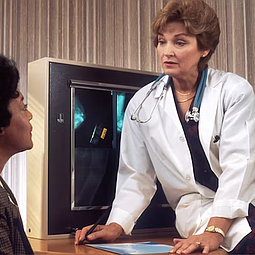Caffeine May Benefit Memory
Many older adults may greatly benefit from drinking coffee on a regular basis. A recent study monitoring the memory and thinking processes of older adults has found that all those with higher blood caffeine levels avoided the onset of Alzheimer's disease in the two-to-four years of study follow-up. In addition, coffee appeared to be the major or only source of caffeine for these individuals.
This new study provides the first direct evidence that caffeine/coffee intake is associated with a reduced risk of dementia or delayed onset of dementia. The study involved 124 people between the ages 65 to 88 in Tampa and Miami.
“These intriguing results suggest that older adults with mild memory impairment who drink moderate levels of coffee, about 3 cups a day, will not convert to Alzheimer's disease, or at least will experience a substantial delay before converting to Alzheimer's,” said study lead author Dr. Chuanhai Cao, a neuroscientist at University of South Florida. “The results from this study, along with our earlier studies in Alzheimer's mice, are very consistent in indicating that moderate daily caffeine/coffee intake throughout adulthood should appreciably protect against Alzheimer's disease later in life.”
The study shows this protection probably occurs even in older people with mild cognitive impairment (MCI). Patients with MCI already experience some short-term memory loss and initial Alzheimer's pathology in their brains. Each year, about 15% of MCI patients progress to full-blown Alzheimer's disease.
“We are not saying that moderate coffee consumption will completely protect people from Alzheimer's disease,” Dr. Cao cautioned. “However, we firmly believe that moderate coffee consumption can appreciably reduce your risk of Alzheimer's or delay its onset.”
Seniors May Need More Vitamin D to Prevent Mobility Difficulties
Older adults who don’t get enough vitamin D either from diet, supplements or sun exposure may be at increased risk of developing mobility limitations and disability, according to new research. Researchers analyzed the association between vitamin D and onset of mobility limitation and disability over six years of follow-up using data from the National Institute on Aging’s Health, Aging, and Body Composition (Health ABC) study. Mobility limitation and disability are defined as any difficulty or inability to walk several blocks or climb a flight of stairs.
“This is one of the first studies to look at the association of vitamin D and the onset of new mobility limitations or disability in older adults,” said lead author Denise Houston, Ph.D., who is with Wake Forest University, Winston-Salem, North Carolina.
The study included 2,099 men and women between the ages of 70 and 79. Eligible participants reported no difficulty walking one-fourth mile, climbing 10 steps, or performing basic, daily living activities. Vitamin D levels were measured in the blood at the beginning of the study. Occurrence of mobility limitation and disability during follow-up was assessed during annual clinic visits alternating with telephone interviews every six months over six years.
“We observed about a 30% increased risk of mobility limitations for those older adults who had low levels of vitamin D, and almost a two-fold higher risk of mobility disability,” said Houston.
Vitamin D plays an important role in muscle function, so it is plausible that low levels of the vitamin could result in the onset of decreased lower muscle strength and physical performance. Vitamin D may also indirectly affect physical function as low vitamin D levels have also been associated with diabetes, high blood pressure, cardiovascular disease and lung disease.
Commonly Used Painkillers May Protect Against Skin Cancer
A new study suggests that aspirin and other similar painkillers may help protect against skin cancer. Previous studies suggest that taking nonsteroidal anti-inflammatory drugs (NSAIDs), which include aspirin, ibuprofen, and naproxen, as well as a variety of other nonprescription and prescription drugs, can decrease an individual’s risk of developing some types of cancer.
Danish researchers looked to see if the medications might decrease the risk of the three major types of skin cancer: basal cell carcinoma, squamous cell carcinoma, and malignant melanoma.The researchers analyzed medical records from northern Denmark from 1991 through 2009 and identified 1,974 diagnoses of squamous cell carcinoma, 13,316 diagnoses of basal cell carcinoma, and 3,242 diagnoses of malignant melanoma. They compared information, including prescription data, from these patients with information from 178,655 individuals without skin cancer.
They found that individuals who filled more than two prescriptions for NSAIDs had a 15% decreased risk for developing squamous cell carcinoma and a 13% decreased risk for developing malignant melanoma than those who filled two or fewer prescriptions for the medications, especially when the drugs were taken for seven or more years or taken at high intensity. Individuals who took NSAIDs did not seem to benefit from a reduced risk of developing basal cell carcinoma in general, although they did have a reduced risk of developing this type of cancer on less-exposed sites (body areas other than the head and neck) when they took them long term (15% decreased risk) or at high intensity (21%).
John Schieszer is an award-winning national journalist and radio broadcaster of The Medical Minute. He can be reached at medicalminutes@gmail.com.
This article appeared in the July/August 2012 issue of Northwest Prime Time, the Puget Sound region’s monthly publication celebrating life after 50.





